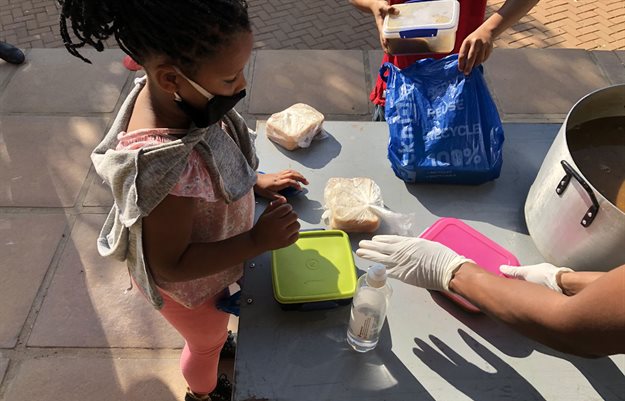
Images by Roux Reklame
47% of respondents reported that their household ran out of money to buy food in April 2020, more than doubling since last year. One in five reported that someone in their household went hungry in the last seven days, and one in seven said that a child had gone hungry in the last seven days. One in eight reported frequent hunger, for three or more days in the past seven days, in their household, and one in 14 reported perpetual hunger, almost every day or every day.
These statistics reflect the daily reality for many South Africans who are now facing compounded hardship as a result of the Covid-19 pandemic that's exacerbating unemployment, particularly among the already disadvantaged. The impact would be far worse were it not for the non-profit organisations, facing hardships themselves, who have extended their reach even further in assisting as many vulnerable families and communities as their resources have allowed. Like all sectors of society, NPOs too have had to adapt and pivot their operations to survive and operate sustainably in our new normal.
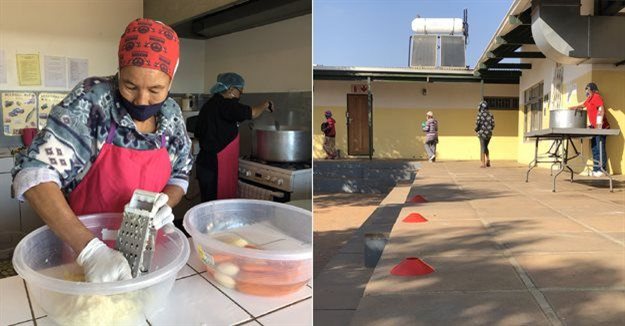
Images by Roux Reklame
Goedgedacht Trust supporting families in need
One such organisation is the Goedgedacht Trust. Established in 1993, the trust, based in the Swartland region of the Western Cape, has long been involved in supporting families in need, working closely with the Swartland Municipality, Swartland Hospital, Provincial Health Services Authority and Department of Social Development.
"The ‘Goedgedacht’ (meaning ‘good idea’) Trust was born from the vision of a group of concerned and committed social workers who wanted to make a contribution to the transformation of poor rural communities.
They started with interventions through the Goedgedacht Trust’s flagship initiative, the Path Onto Prosperity (POP) programme, which is focused on healing the past, building self-esteem, self-confidence, capacity and skills of children and young people, to help them break the cycle of generational poverty.
The POP programme has given hope and changed the lives of many rural children over the years," says Loretta Williams, head of marketing and donations at Goedgedacht Trust.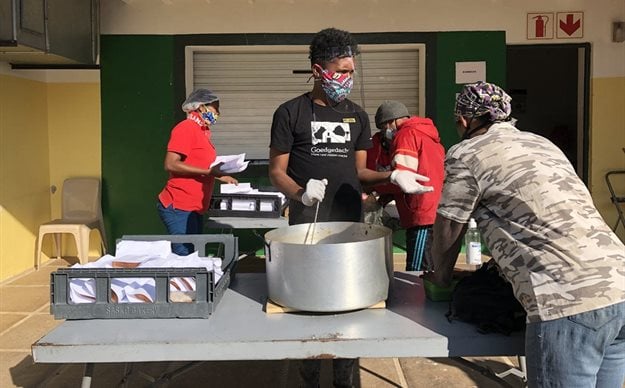
Images by Roux Reklame
Emergency feeding scheme
Faced with the Covid-19 pandemic and national lockdown, the trust's immediate strategy involved the launch of its emergency feeding scheme which currently provides daily meals for up to 1,292 vulnerable families across its six POP Centres in the communities of Riebeek West, Riebeek Kasteel, Chatsworth, Riverlands, Koringberg and Porterville.
Since 14 April, more than 237,500 meals have been served. The trust, through its trading company Goedgedacht Trading, also produces an immunity-boosting drink that is distributed at the POP centres. Also part of its food security efforts, village gardeners are provided with vegetable seeds, enabling them to secure food supply for themselves and to support their neighbours with fresh produce.
Keri-Leigh Paschal,
Nation Builder 15 Jul 2020 The POP centres have also been made available as Covid-19 testing and tracking stations, and since late May, the trust has established and run a recovery centre from the 18th century Cape Dutch farm, helping to alleviate pressure on the local Swartland Hospital. Steps have been taken in partnership with the Western Cape Department of Health to ensure that the Goedgedacht Farm complies with all the strict regulatory requirements of quarantine.
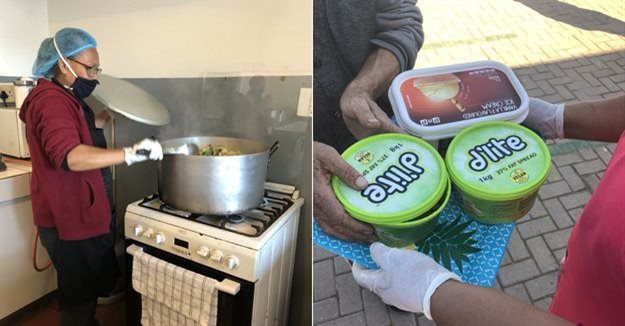
Images by Roux Reklame
Goedgedacht Covid-19 recovery centre
Its facilities offer 34 beds in separate quarters for men and women, and have been refurbished to include leisure spaces. Guests are provided with fresh linen and amenities on arrival and protocols have been put in place to secure contactless meal delivery and weekly laundry services. Wi-Fi and telephones are accessible to ensure guests are able to connect with social services and their loved ones for support. A resident doctor and a registered nurse ensure guests are monitored regularly and anyone displaying serious symptoms is referred back to the Swartland Hospital. Staff and guests are screened regularly for elevated temperatures and other symptoms.
Six self-isolation units have also been made available for first responders, medical professionals and Goedgedacht staff.
"We are very fortunate to have a beautiful farm with facilities to accommodate leisure guests, but our hospitality offering has been hit hard by the outbreak of the virus, with all our reservations for the remainder of the year cancelled. We were left with all the space and started thinking of how we could use our facilities to do our part in fighting the Covid-19 coronavirus. We realised that the Swartland Hospital might become overwhelmed as the number of infections was rising and that we could help in a way to take the pressure off the hospital if we were to make beds available to patients. We started conversations with the Swartland Hospital and the Department of Health, which led to the establishment of the recovery centre," explains Williams.
Now more than a month since opening, the recovery centre has seen 40 patients through its doors, who did not require high care, where they could recover from the virus with dignity.
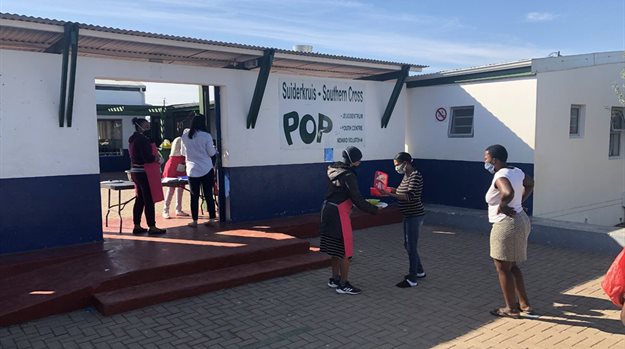
Images by Roux Reklame
Donations needed
To make all of this happen, however, the Goedgedacht Trust needs to cover its costs and donations are pivotal in supporting its efforts to help rural families during the pandemic.
"As our work is dependent on donations, our biggest concern is the sustainability of our work. We welcome any kind of support whether monetary or through a donation in kind," says Williams.
Click here for more information on how to support the Goedgedacht Trust's efforts.As much as the pandemic is taking its toll in the Swartland, it is also bringing people and businesses together. "The crisis has severely affected the livelihoods of people already trapped within the cycle of generational poverty. We are, however, seeing a 'new Swartland' emerge - a Swartland where individuals and business understand how much we need each other in order to survive. People, businesses and even small-scale farmers started reaching out to help one another in a remarkable way. I don’t believe that this would have happened if we weren't all experiencing the same storm," says Williams.
For more information on the Goedgedacht Trust, click here.























































